Welcoming a chinchilla into your home brings joy and responsibility. As a caring owner, you may wonder about introducing fruits like raspberries into their diet.
In this guide, we’ll explore the question, “Can chinchillas eat raspberries?” to help you make informed decisions for your fluffy friend.
Can Chinchillas Eat Raspberries?
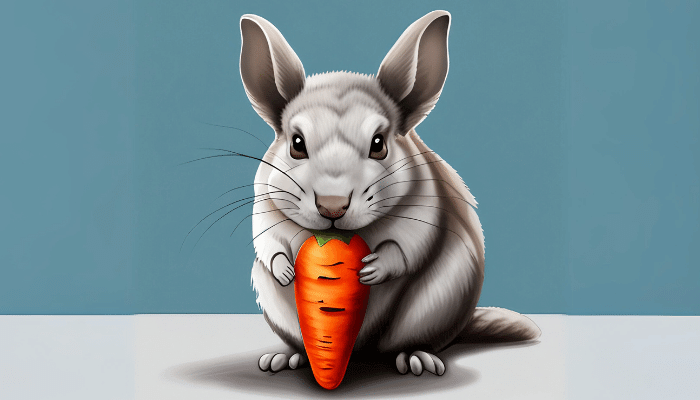
Chinchillas are known for their delicate digestive systems, and any deviation from their usual diet requires careful consideration. So, can chinchillas indulge in the sweet and tart delight of raspberries?
Understanding Chinchilla Diets
Chinchillas primarily thrive on hay-based diets, supplemented with pellets and fresh water. Introducing new foods must align with their specific nutritional needs.
The Raspberry Dilemma
Raspberries, although packed with vitamins and antioxidants, can pose challenges for chinchillas. The high sugar content may lead to digestive issues, making moderation crucial.
Exploring Chinchilla Diets
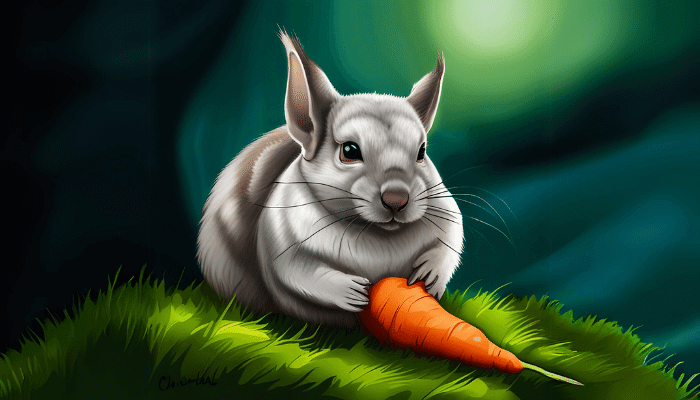
Now that we’ve touched on the raspberry conundrum, let’s delve into the broader spectrum of chinchilla diets.
The Hay Factor
Hay is the cornerstone of a chinchilla’s diet. It provides essential fiber, aiding in proper digestion and preventing dental problems. Timothy hay, in particular, is a favorite among chinchillas.
Pellets: A Balanced Addition
Pellets formulated specifically for chinchillas ensure they receive a balanced mix of nutrients. Look for options with high fiber content and minimal additives.
Fruits and Vegetables: A Limited Affair
Chinchillas can enjoy a select range of fruits and veggies, but moderation is crucial. Apart from raspberries, other safe options include apples, carrots, and leafy greens.
Nutritional Breakdown of Raspberries
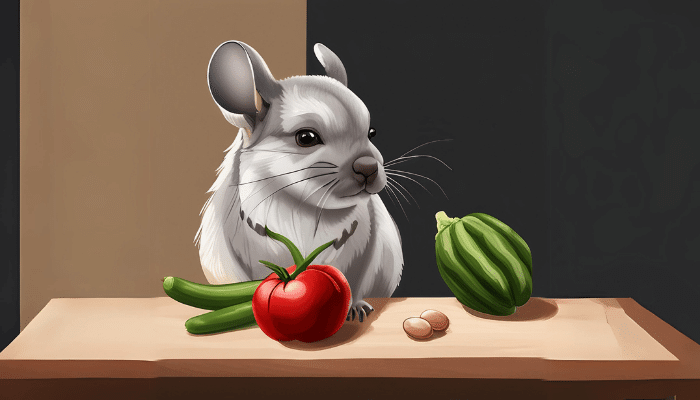
Before deciding whether to treat your chinchilla with raspberries, let’s delve into the nutritional composition of these vibrant berries.
Rich in Vitamins
Raspberries boast an array of essential vitamins, including vitamin C, which supports the immune system. However, chinchillas can produce their own vitamin C, minimizing the necessity of external sources.
Fiber Content
Fiber is a cornerstone of a chinchilla’s diet, aiding digestion and preventing gastrointestinal problems. Raspberries offer a decent fiber content, but excessive consumption may lead to diarrhea.
Natural Sugars
While raspberries contain natural sugars, chinchillas are prone to diabetes. Hence, limiting their intake of sugary fruits becomes paramount.
How Much is Too Much?

Moderation is key when incorporating raspberries into your chinchilla’s diet. Let’s discuss the recommended serving size and frequency.
Serving Size Guidelines
Offering a small portion, about a teaspoon, once a week is a safe way to introduce raspberries. Monitor your chinchilla for any adverse reactions and adjust accordingly.
Observing Dietary Changes
Chinchillas are creatures of habit. Gradual introductions help them adapt, reducing the risk of gastrointestinal distress. Observe your pet’s response and proceed cautiously.
Potential Risks and Health Considerations
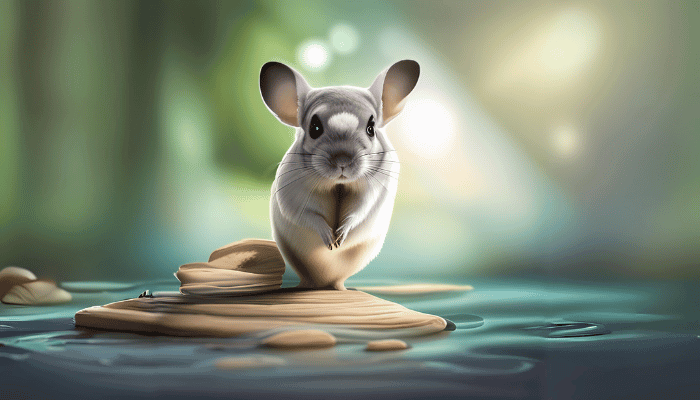
Despite the appeal of raspberries, certain risks may outweigh the benefits for chinchillas.
Digestive Issues
Chinchillas are prone to gastrointestinal problems. The introduction of new foods, especially those high in sugar, can disrupt their sensitive digestive balance.
Obesity Concerns
Chinchillas can gain weight rapidly, leading to obesity-related health issues. Limiting treats like raspberries helps maintain a healthy weight.
Exploring the Nutritional Landscape
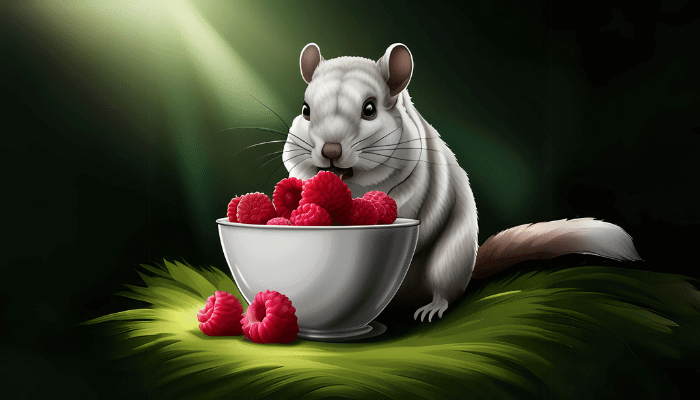
Let’s break down the nutritional components of raspberries and understand how they fit into a chinchilla’s diet.
Raspberry Nutrition Facts
Here’s a quick look at the nutritional content of raspberries:
| Nutrient | Quantity per 100g |
|---|---|
| Calories | 52 |
| Carbohydrates | 11.94g |
| Fiber | 6.5g |
| Sugars | 4.42g |
| Vitamins | A, C, K |
| Minerals | Manganese, Magnesium, Potassium |
Balancing Act: Given the sugar content, moderation is key. Too many raspberries may upset the delicate balance of a chinchilla’s digestive system.
Conclusion
In the intricate world of chinchilla nutrition, the answer to “Can chinchillas eat raspberries?” is a cautious yes. However, maintaining a balanced diet with a focus on hay and chinchilla-specific pellets should remain the priority.
Treats like raspberries should be occasional, ensuring the well-being of your delightful pet. Always consult with your veterinarian before introducing new foods into your chinchilla’s diet to guarantee a happy and healthy life for your furry companion.
FAQs about Chinchillas and Raspberries

Can chinchillas eat raspberries daily?
No, daily consumption is not advisable due to the sugar content. Limiting it to once a week is recommended.
Are there alternative fruits for chinchillas?
Yes, chinchillas can enjoy small amounts of fruits like apple slices or blueberries in moderation.
Can chinchillas eat raspberry leaves or stems?
Raspberry leaves and stems are safe in moderation, but always remove any thorns or pesticides.
Are Frozen Raspberries Suitable for Chinchillas?
Yes, but ensure they are thawed to room temperature. Cold foods can cause discomfort to chinchillas.
Are there other berries chinchillas can enjoy?
Yes, chinchillas can savor strawberries and blueberries in moderation.
Can Chinchillas Eat Raspberry Seeds?
It’s best to remove seeds as they pose a choking hazard. Opt for seedless raspberries if possible.
Do wild chinchillas eat raspberries?
Wild chinchillas primarily consume grasses, herbs, and shrubs; raspberries are not a natural part of their diet.
What Happens If My Chinchilla Eats Too Many Raspberries?
Excessive raspberry consumption can lead to digestive issues. If you notice any abnormalities, consult your vet.
What if my chinchilla refuses to eat raspberries?
Chinchillas have preferences. If they refuse raspberries, respect their choice and offer other approved treats.

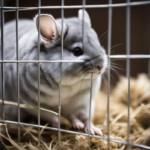

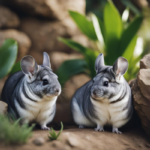



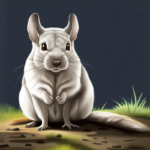

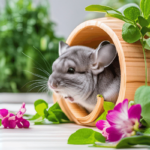

1 thought on “Can chinchillas eat raspberries? A Complete Diet Guide”